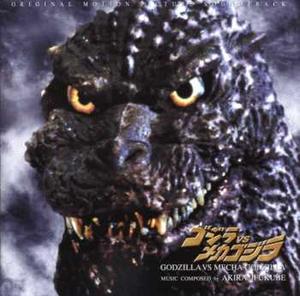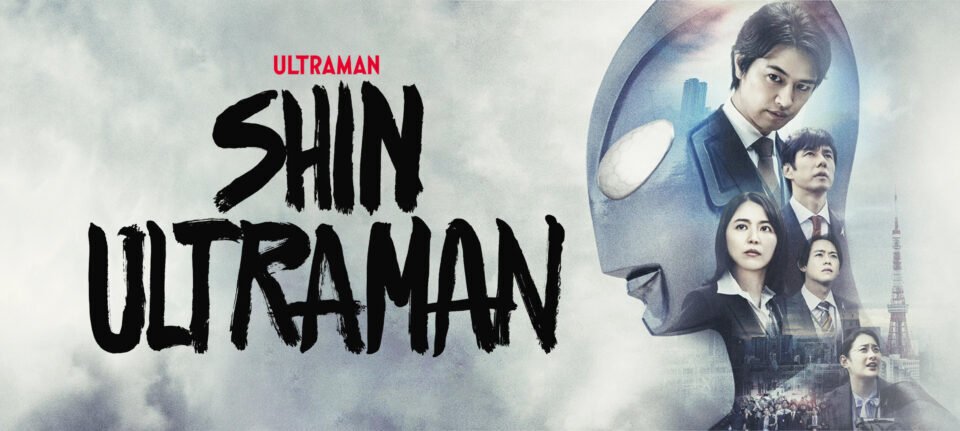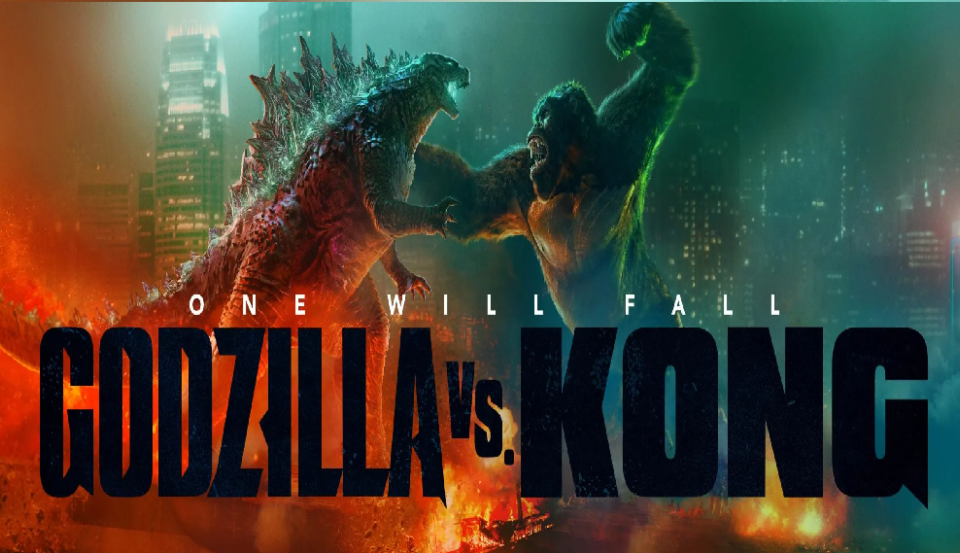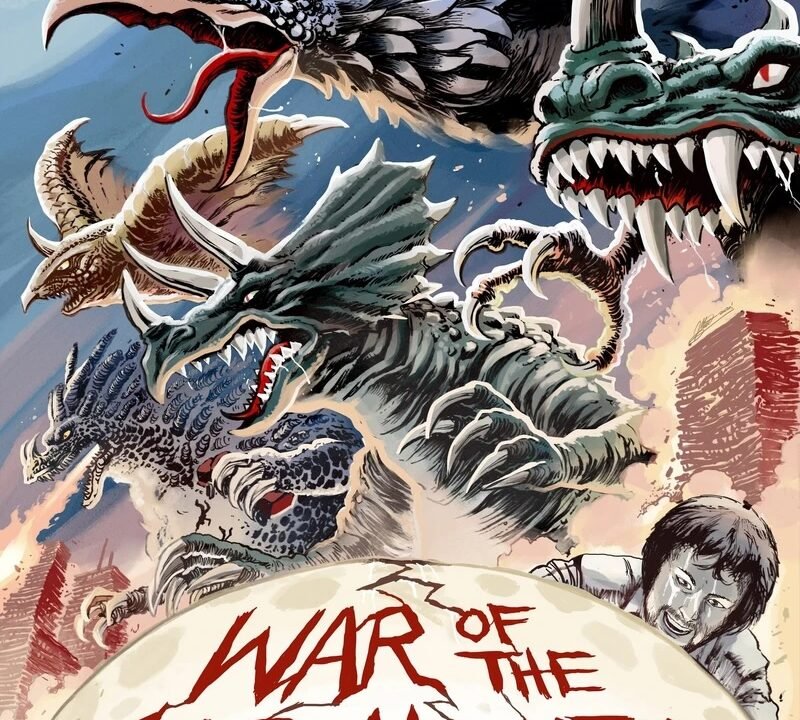Planet X Control Room: Episode 57
March 21, 2014Planet X Control Room: Episode 58
April 3, 2014 For those of us who are pretty familiar with the Godzilla franchise, Akira Ifukube’s themes and marches are timeless. Not only that, I would even argue that they are some of the most memorable pieces of music for any film franchise; just like John Williams had Star Wars, Bill Conti had Rocky, and Jerry Goldsmith had Rambo.
For those of us who are pretty familiar with the Godzilla franchise, Akira Ifukube’s themes and marches are timeless. Not only that, I would even argue that they are some of the most memorable pieces of music for any film franchise; just like John Williams had Star Wars, Bill Conti had Rocky, and Jerry Goldsmith had Rambo.
Ifukube’s score to Godzilla vs. Mechagodzilla (I am leaving the “II” out, because it’s technically Godzilla vs. Mechagodzilla) is one of my favorites from him. Sure, Ifukube’s music always has replay value even if he uses some of the same themes and marches over and over again for various films.
But what makes this score so unique is that Ifukube changed it up a bit with some areas. These changes, while minor to some degree, make an astronomical difference in this score. Not only that, it helps to separate this score from his many other Godzilla and kaiju films.
This set, from the 50th Anniversary Perfect Collection, contains 2 discs and runs at nearly 2.5 hours. Now, Disc 2 contains 12 tracks that are not part of the film’s actual score. I will, however, discuss them later in the review.
Disc 1 places much of the music in the order that it’s presented in the film. Which is fantastic, I think, because, if you know how the movie plays out, you can visualize what’s going on in your mind’s eye. In that case, we get a bit of music during the construction of Mechagodzilla before the credit sequence. Then, we move on to, perhaps, my favorite Ifukube Godzilla composition: the “Main Title” to Godzilla vs. Mechagodzilla. Words cannot describe the amount of power Ifukube conveys with this theme. It’s a compilation of drums and brass that illustrates the size of Mechagodzilla and Godzilla. It also foreshadows titanic struggles and that the stakes are higher than they ever have been. The melody and construction of this theme is one of those areas that Ifukube changes things up. Instead of going back into the well for the typical “Godzilla Theme” or “War of the Monsters” march, he creates a piece that is totally new, powerful, and refreshing.
Tracks 4 and 5, “Fossil of Adonoa Island” and “Rodan Appears,” have a flare of the early films in the franchise. What I kept thinking about, though, was how similar some of the themes were tied to Destroy All Monsters.” It’s a neat throwback, but, I have to admit, taken as a whole, such throwbacks take the entire score off-kilter a bit, because so much of Ifukube’s score to this film is fairly new material outside the “Godzilla Theme” and the “G-Force March.”
There are some short tracks on here that run under a minute in length. Track 13, “Tyrannosaurus Rex Descent,” is one of those that is incredibly short. But what makes this track one of the unique ones is the fact that it is nothing more than a cascading synth theme. It’s very odd to say the least.
The Mechagodzilla theme, “Mechagodzilla Sortie,” comes up again. This time, though, we get tempo changes. It starts off slow, then the theme repeats itself, but with a faster tempo when the mechanical machine takes off. It’s a nice switch-up of the “Main Title” theme.
Track 16, “Godzilla Leaves Kyoto,” is a taste of things to come when Ifukube scores Godzilla vs. Destoroyah. Much of this track is used in the “Requiem” track on that score; when Godzilla dies. The track will eventually be tweaked and lengthened. It’s still a very touching track considering the context in this movie when Godzilla cannot retrieve his son.
A couple of the tracks on this score remind us of Ifukube’s work on Godzilla vs. King Ghidorah with their piano motiffs that were present throughout much of that score.
One of the more unique tracks is Track 19, “Garuda Simulation.” It sounds like the standard military marches that Ifukube used throughout his kaiju scoring days, but it has a synth presentation to it; giving it a flare that is unique and enjoyable.
The “Esper Chorus” track, to me, sounds reminiscent of the church choir track in the Gojira score after Godzilla has rampaged Tokyo. While not as haunting as that track, this outing still has a somber, haunting quality of its own.
The “Theme of Godzilla and Rodan” track at the end of Disc 1 is essentially the “Esper Chorus” track, but with a synth presentation and a solo female vocalist. I really enjoyed this more than the track that actually appears in the film. This one is even more haunting that “Esper Chorus” and its construction is absolutely unique.
Disc 2, as it appears to me, is a disc that has demos of some of the themes and marches from Disc 1. Most of these tracks are cut shorter than their Disc 1 counterparts and a few have some minor tweaks to them, but nothing that makes them superior.
One of the most annoying tracks ever on a Godzilla score is Track 7 on this second disc, “Electrical Discharge Attack.” It runs at 1:16 and is nothing more than a constant cymbal sound. I honestly began to wonder if something was wrong with my CD player as I listened to this track. It is incredibly annoying and has no musical value whatsoever.
The meat and potatoes of Disc 2, though, come in the final 12 tracks. I thank God Matti Keskiivari over at Godzilla Monster Music.com was able to figure out what the deal is with these final tracks, because when I first heard Track 18, “Godzilla So-Fa-Me-Re-Do,” I was taken aback. Initially I thought this was music used in promotional gigs or were actual songs from the movie, but presented on a separate soundtrack.
Actually, these tracks are called the “Godzilla Single Collection 1992-2000.” It doesn’t seem as if these tracks were part of an LP like a lot of special edition material is in this Perfect Soundtrack set. What’s interesting is that track, “Run Run Goji-run” was used to promote Godzilla 2000.
I have to admit, some of these tracks are pretty descent, if not cool. The “Godzilla So-Fa-Me-Re-Do” is a bit strange and may be aimed at children, but it has a memorable theme to it.
The “Traditional Tune Godzil-Rap” is really unique and catchy. It takes Godzilla’s Theme (which is what most of the remaining tracks use) and mixes it into a rap. From my understanding of Japanese, which is very limited, it’s nothing more than the artists quickly naming off various kaiju whose names would fit within the tune proper. It’s nothing tremendously special, but it is catchy. The final few moments, however, are the most annoying. It fades into a crackly static effect before ending.
The “Opening Title” to a Japanese T.V. series simply titled, Godzilla, is my favorite out of these final 12 tracks. It reminds me so much of a cross between the 1995 Judge Dredd theme and the “Main Title” to Godzilla vs. Spacegodzilla. It is low in tone, ponderous, and powerful. It is a brilliant track!
Tracks 25-29 on Disc 2 are simply karaoke versions of the previous songs except for the “Opening Title” to Godzilla, because that was already a musical piece without lyrics.
The Godzilla vs. Mechagodzilla score is one of my absolute favorites from Maestro Ifukube. His “Main Title” to this movie is one of my all-time favorite pieces of music from any Godzilla film. The rest of the score conveys titanic battles as well as moments of uncertainty and fear. Ifukube captures these moments very well and changes the music up throughout most of this score. This change is appropriate and he is able to illustrate a unique score to a film that contains Godzilla’s most powerful foe in Mechagodzilla.
Disc 2, for the most part, is nothing too terribly special. The final 12 tracks are what make this particular disc standout and worth listening to. While some fans may not enjoy most of these tracks, I still find them interesting in their own way. I would highly recommend, though, checking out Track 24, the “Opening Title” to Godzilla. I believe most of you would really enjoy that.
All together, I do highly recommend this score. Ifukube nearly creates an entire score from scratch and continues his trademark of rousing marches and themes. The tracks, where appropriate, capture the necessary emotions and actions for any given scene. The replay value is pretty high for this score; and if you can pick this score up, I would advise you to do so.
[include id=”22″ title=”Kent Godzilla vs. Mechagodzilla II Score Review”]




